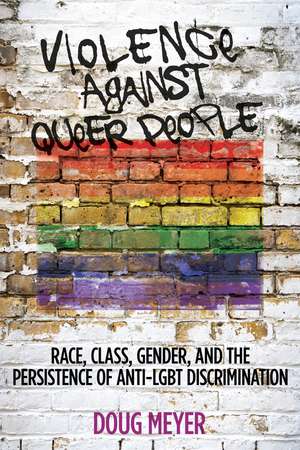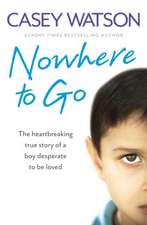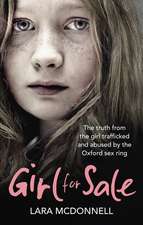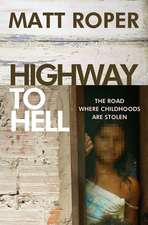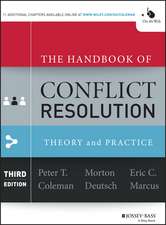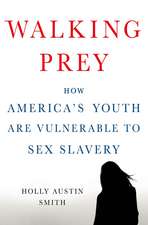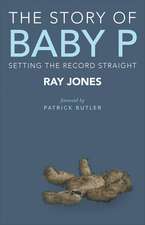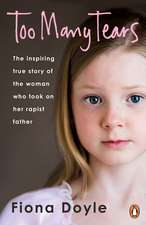Violence against Queer People: Race, Class, Gender, and the Persistence of Anti-LGBT Discrimination
Autor Doug Meyeren Limba Engleză Paperback – 11 oct 2015
Received a 2016 Stonewall Book Award – Israel Fishman Non-Fiction Award Honor Book from the American Library Association
Selected as one of “The Best of the Best from the University Presses: Books You Should Know About” at the 2016 ALA Annual Conference
Violence against lesbians and gay men has increasingly captured media and scholarly attention. But these reports tend to focus on one segment of the LGBT community—white, middle class men—and largely ignore that part of the community that arguably suffers a larger share of the violence—racial minorities, the poor, and women. In Violence against Queer People, sociologist Doug Meyer offers the first investigation of anti-queer violence that focuses on the role played by race, class, and gender.
Drawing on interviews with forty-seven victims of violence, Meyer shows that LGBT people encounter significantly different forms of violence—and perceive that violence quite differently—based on their race, class, and gender. His research highlights the extent to which other forms of discrimination—including racism and sexism—shape LGBT people’s experience of abuse. He reports, for instance, that lesbian and transgender women often described violent incidents in which a sexual or a misogynistic component was introduced, and that LGBT people of color sometimes weren’t sure if anti-queer violence was based solely on their sexuality or whether racism or sexism had also played a role. Meyer observes that given the many differences in how anti-queer violence is experienced, the present media focus on white, middle-class victims greatly oversimplifies and distorts the nature of anti-queer violence. In fact, attempts to reduce anti-queer violence that ignore race, class, and gender run the risk of helping only the most privileged gay subjects.
Many feel that the struggle for gay rights has largely been accomplished and the tide of history has swung in favor of LGBT equality. Violence against Queer People, on the contrary, argues that the lives of many LGBT people—particularly the most vulnerable—have improved very little, if at all, over the past thirty years.
Selected as one of “The Best of the Best from the University Presses: Books You Should Know About” at the 2016 ALA Annual Conference
Violence against lesbians and gay men has increasingly captured media and scholarly attention. But these reports tend to focus on one segment of the LGBT community—white, middle class men—and largely ignore that part of the community that arguably suffers a larger share of the violence—racial minorities, the poor, and women. In Violence against Queer People, sociologist Doug Meyer offers the first investigation of anti-queer violence that focuses on the role played by race, class, and gender.
Drawing on interviews with forty-seven victims of violence, Meyer shows that LGBT people encounter significantly different forms of violence—and perceive that violence quite differently—based on their race, class, and gender. His research highlights the extent to which other forms of discrimination—including racism and sexism—shape LGBT people’s experience of abuse. He reports, for instance, that lesbian and transgender women often described violent incidents in which a sexual or a misogynistic component was introduced, and that LGBT people of color sometimes weren’t sure if anti-queer violence was based solely on their sexuality or whether racism or sexism had also played a role. Meyer observes that given the many differences in how anti-queer violence is experienced, the present media focus on white, middle-class victims greatly oversimplifies and distorts the nature of anti-queer violence. In fact, attempts to reduce anti-queer violence that ignore race, class, and gender run the risk of helping only the most privileged gay subjects.
Many feel that the struggle for gay rights has largely been accomplished and the tide of history has swung in favor of LGBT equality. Violence against Queer People, on the contrary, argues that the lives of many LGBT people—particularly the most vulnerable—have improved very little, if at all, over the past thirty years.
| Toate formatele și edițiile | Preț | Express |
|---|---|---|
| Paperback (1) | 225.28 lei 6-8 săpt. | |
| Rutgers University Press – 11 oct 2015 | 225.28 lei 6-8 săpt. | |
| Hardback (1) | 825.59 lei 6-8 săpt. | |
| Rutgers University Press – 11 oct 2015 | 825.59 lei 6-8 săpt. |
Preț: 225.28 lei
Nou
Puncte Express: 338
Preț estimativ în valută:
43.11€ • 46.81$ • 36.21£
43.11€ • 46.81$ • 36.21£
Carte tipărită la comandă
Livrare economică 22 aprilie-06 mai
Preluare comenzi: 021 569.72.76
Specificații
ISBN-13: 9780813573151
ISBN-10: 0813573157
Pagini: 192
Ilustrații: 1 table
Dimensiuni: 152 x 229 x 15 mm
Greutate: 0.31 kg
Ediția:None
Editura: Rutgers University Press
Colecția Rutgers University Press
ISBN-10: 0813573157
Pagini: 192
Ilustrații: 1 table
Dimensiuni: 152 x 229 x 15 mm
Greutate: 0.31 kg
Ediția:None
Editura: Rutgers University Press
Colecția Rutgers University Press
Notă biografică
DOUG MEYER is an Assistant Professor of LGBT Studies in the women, gender, and sexuality program at the University of Virginia, in Charlottesville, Virginia.
Cuprins
Acknowledgments
1 Introduction: Social Inequality and Violence against LGBT People
2 More than Homophobia: The Race, Class, and Gender Dynamics of Anti-LGBT Violence
3 “I’m Making Black People Look Bad”: The Racial Implications of Anti-Queer Violence
4 Gendered Views of Sexual Assault, Physical Violence, and Verbal Abuse
5 Race, Gender, and Perceptions of Violence as Homophobic
6 “Not That Big of a Deal”: Social Class Differences in Viewing Violence as Severe
7 The Home and the Street: Violence from Strangers and Family Members
8 Conclusion: Anti-Queer Violence and Multiple Systems of Oppression
Appendix: Methods
Notes
References
Index
1 Introduction: Social Inequality and Violence against LGBT People
2 More than Homophobia: The Race, Class, and Gender Dynamics of Anti-LGBT Violence
3 “I’m Making Black People Look Bad”: The Racial Implications of Anti-Queer Violence
4 Gendered Views of Sexual Assault, Physical Violence, and Verbal Abuse
5 Race, Gender, and Perceptions of Violence as Homophobic
6 “Not That Big of a Deal”: Social Class Differences in Viewing Violence as Severe
7 The Home and the Street: Violence from Strangers and Family Members
8 Conclusion: Anti-Queer Violence and Multiple Systems of Oppression
Appendix: Methods
Notes
References
Index
Recenzii
"For sociologists who seek clear examples that teach undergraduate students about violence and intersectionality, this book is a treasure trove."
"This book first and foremost encourages readers to think about the causes, manifestations, and consequences of anti-LGBT violence in ways that take seriously multiple axes of social differentiation as well as the power and privilege that accompany them... Meyer's interviewees provide a rich source of original data that reveal a diverse set of experience with violence over the course of their lives... One of the many strengths of this book is the skillful way in which Meyer presents the voices of his interviewees... [Violence Against Queer People] provides the kind of empirically driven theoretical account of anti-queer violence that broadens and deepens the study of discrimination in general and bias-motivated violence in particular.".
"A must read for scholars, instructors, and students interested in the discrimination members of the LGBT community experience … Essential. All levels/libraries."
"The originality of [Violence Against Queer People] is in its intersectional approach, where [Meyer] argues that the concept of homophobia is not considered sufficient enough to explain the reasons for the violence against LGBT people … This book will be of interest to urban sexuality and social dynamics scholars, as well as community mental health practitioners, public security administrators, and LGBTQ activists."
"Doug Meyer’s Violence against Queer People demonstrates the importance of studying violence against LGBT people who are also racial minorities, women, and/or working class. The book remains extremely accessible as it tackles important theoretical frameworks of race, class, gender, and sexuality."
"Doug Meyer gives us intersectionality—with a punch. Somewhere there are rainbow wedding cakes and happy new families—but all is not yet right in America. For people without race privilege, queer remains dangerous territory."
“One of the greatest strengths of Violence Against Queer People is the interview narratives that Meyer provides throughout the book…. These narratives not only humanize the topics under discussion, but they also serve to demonstrate the complexity of intersectionality in relation to LGBT oppressions.”
"Violence against Queer People moves sexualities research forward by broadening our understanding of anti-LGBT violence....[It] is an insightful exploration of how power, privilege, inequality, and social location all impact anti-LGBT violence: how it is enacted, experienced, and perceived."
Descriere
Sociologist Doug Meyer offers the first investigation of anti-queer violence that highlights the role played by race, class, and gender. Drawing on interviews with forty-seven victims of violence, Meyer shows that LGBT people encounter significantly different forms of violence—and perceive that violence quite differently—based on their race, class, and gender. Attempts to reduce anti-queer violence that ignore these three factors run the risk of helping only the most privileged gay subjects.
